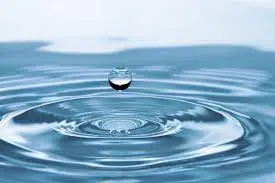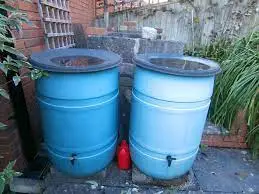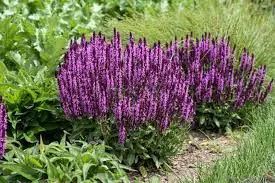
Water Conservation Tips: How To Save Water And Protect The Environment
By Steven Green | May 24, 2023
As the famous proverb goes, ‘water is life.’ It is essential for our survival and an irreplaceable resource that we need to cherish and protect.
However, with population growth, industrialization, and urbanization, water scarcity has become a severe issue in many parts of the world. Consequently, it’s critical that we learn how to save water at home and work to conserve this precious resource.
If you’re reading this article, chances are you’re already aware of the importance of conserving water. You may even be seeking ways to reduce your water usage without sacrificing comfort or convenience.
In the article are some practical tips on how to save water effectively and protect the environment from further degradation.
By implementing these strategies into your daily routine, not only will you feel empowered by mastering a new skill but also contribute towards creating a better tomorrow for generations to come.
Benefits Of Water Conservation
It cannot be stressed enough how big the importance is of conserving this precious resource. Efficient use and management of water not only ensures sustainability but also has cost-effective benefits in the long run.
By being mindful of our water usage, we can significantly reduce unnecessary expenses while simultaneously helping to protect the environment.
Public awareness about water conservation is crucial for its success. It’s essential that everyone understands how their small contributions towards water conservation can make a significant impact.
With proper education, communities can work together to conserve water effectively and efficiently.
In the next section, we’ll discuss simple changes you can make at home to help save water without compromising your daily routine.
Simple Changes To Save Water
Are you looking for simple ways to save water and protect the environment? Look no further than your own household habits. By making a few easy changes, you can reduce your water usage and lower your utility bills.

First, consider implementing some garden strategies. Collect rainwater in barrels or buckets to use for watering plants instead of using tap water.
Plant drought-resistant plants that require less watering. Use mulch around plants to retain moisture in the soil. These small changes can add up to big savings over time.
Secondly, think about plumbing upgrades. Fix any leaky faucets or pipes as soon as possible. Install low-flow showerheads and toilets to reduce water usage without sacrificing comfort or convenience.
Consider upgrading your washing machine and dishwasher to high-efficiency models that use less water per cycle.
Lastly, make some appliance adjustments and outdoor activity modifications. Only run full loads in the dishwasher and washing machine rather than running multiple partial loads throughout the week.
When brushing your teeth or shaving, turn off the faucet while lathering soap or applying product. Avoid hosing down driveways or sidewalks; instead sweep them clean with a broom.
By implementing these simple changes into our daily routines, we can all do our part in conserving water and protecting the environment for future generations to come.
Next up: let’s dive into some more specific techniques for saving even more H20!
Water Conservation Techniques
Now that you’ve made the simple changes in your daily routine to save water, it’s time to take things up a notch. There are various techniques and tools available that can help you conserve even more water while protecting the environment at the same time.
One of the best ways to do this is by investing in water saving devices such as low-flow showerheads and faucets. These simple additions can reduce water usage by up to 50% without sacrificing performance or comfort.

Furthermore, planting drought resistant plants in your garden can significantly cut down on outdoor water usage.
And if you’re really looking for an eco-friendly option, consider greywater reuse systems which collect used household water from sinks, showers and washing machines and repurpose it for landscape irrigation.
Another important aspect of conserving water is leak detection. Even small leaks can waste hundreds of gallons of water per day, so regular checks around your home should be done to prevent any unnecessary loss.
Finally, don’t forget about using energy efficient appliances that consume less power when running through their cycles – these will also use less water overall! In the next section we’ll cover rainwater harvesting and how it too contributes to conservation efforts.
Rainwater Harvesting
Rainwater harvesting can be like having your own personal savings account. Imagine that every time it rains, you have the opportunity to collect and store water for later use.
Just as with saving money in a bank account, collecting rainwater is a way to save up resources for when they are needed most. And just like with financial savings, there are cost-effective solutions available for implementing rainwater harvesting systems.
Rainwater harvesting has numerous urban applications and can be used for irrigation, washing clothes or cars, flushing toilets, and even drinking after proper filtration.
Filtration systems remove impurities and ensure the collected water is safe for its intended purpose. Storage options range from simple barrels to underground cisterns depending on space availability and budget.
Plus, many governments offer incentives such as tax credits or grants to encourage rainwater harvesting adoption. By investing in this sustainable practice now, we can reap long-term benefits both financially and environmentally.
As we consider the long-term impact of water conservation efforts, let’s continue exploring practical ways to conserve our planet’s precious resources without sacrificing convenience or comfort.
So what steps can we take next?
Long-Term Impact Of Water Conservation
It cannot be stressed enough how crucial it is to consider the long-term impact of our actions on the environment.
Water conservation not only saves precious resources but also helps reduce environmental effects such as soil erosion and pollution caused by runoff from overwatering lawns or using fertilizers and pesticides.
Community involvement plays a significant role in creating sustainable practices that ensure access to clean water for future generations.
Educational programs aimed at raising awareness of the benefits of water conservation can help people understand why policy changes are necessary.
These policies should focus on promoting efficient use of water resources through measures like rainwater harvesting, greywater reuse, and smart irrigation systems.
By working together towards these goals, we can conserve water while protecting our planet’s natural resources for years to come.
Frequently Asked Questions
What Are Some Common Misconceptions About Water Conservation?
Water conservation is a hot topic nowadays, and it’s easy to see why. It’s crucial that we all do our part to help protect the environment by being mindful of our water usage.
Unfortunately, there are many common misconceptions about water conservation that could be holding people back from making a real difference.
You heared all the excuses: ‘It doesn’t matter if I leave the tap running while brushing my teeth,’ or ‘I don’t need to fix that leaky faucet because it’s just a small drip.’ These misunderstandings can add up over time and lead to significant waste.
Luckily, it’s not too late to start debunking these myths and revealing the truths behind water conservation. By clarifying these misconceptions and sharing the facts with others, we can make a meaningful impact on our planet for generations to come.
How Can We Encourage Others To Conserve Water?
As a water conservation specialist, one of the most important aspects of my work is encouraging others to conserve water.
Educational campaigns are an effective way to spread awareness about the importance of water conservation and how individuals can make a difference.
Community involvement is also crucial as it allows for collective action towards protecting our water resources.
Public speaking engagements enable me to share my knowledge and passion with larger audiences and inspire them to take action.
Social media platforms provide a powerful tool for spreading the message even further.
Lastly, grassroots activism empowers individuals to drive change in their own communities and beyond.
It’s essential that we all do our part in conserving water, so let’s work together towards this common goal.
Are There Any Financial Incentives For Water Conservation?
Are you looking for a way to save money while conserving water?
Well, I have some good news! Financial incentives are available for those who want to make the investment in water conservation.
Tax rebates and government programs offer cost savings that can offset the initial expenses of installing low-flow fixtures or landscaping with drought-tolerant plants.
These investments not only benefit your wallet but also protect our environment by reducing water waste. So, take advantage of these opportunities and become a savvy investor in both your finances and the planet’s future.
What Impact Does Water Conservation Have On Wildlife And Ecosystems?
Water conservation is crucial for the protection of wildlife and ecosystems. The importance of preserving our natural resources as droughts becomes more frequent and intense across the globe.
Without proper conservation efforts, biodiversity could be severely impacted by habitat loss and water pollution. By implementing practical water-saving measures in our daily lives, we can help ensure that future generations will have access to clean water and thriving habitats for all species to enjoy.
So let’s take action today and do our part in protecting our planet!
How Can Technology Be Used To Improve Water Conservation Efforts?
Technology and water conservation come hand in hand. Experts are working on the latest innovations in smart irrigation systems.
These systems use sensors to detect soil moisture levels and adjust watering accordingly, saving up to 50% of water usage compared to traditional methods.
Additionally, leak detection devices are becoming more accurate and affordable, allowing homeowners and businesses to easily identify leaks and make repairs quickly.
Water monitoring systems can help track usage patterns and identify areas for improvement.
And let’s not forget about greywater recycling and rainwater harvesting! Both of these techniques allow us to reuse water that would otherwise go down the drain or into storm drains.
As a water conservation specialist, it excites me to see how technology is evolving to support our efforts to preserve this precious resource.
Conclusion
We must work together to protect our environment and preserve this precious resource for future generations.
Remember, the small changes we make in our daily lives can have a significant impact on water conservation. Think of each drop of water as a symbol of life – without it, nothing can survive.
By implementing simple practices such as fixing leaky faucets and reducing shower time, we are doing our part to ensure that all living creatures have access to clean water.
Together, let’s take action towards a more sustainable future where water is valued and protected.
For more blog posts on eco-friendly and sustainable lifestyle go to our lifestyle page.
